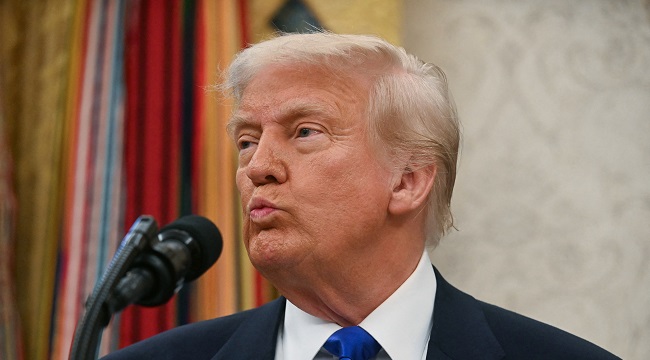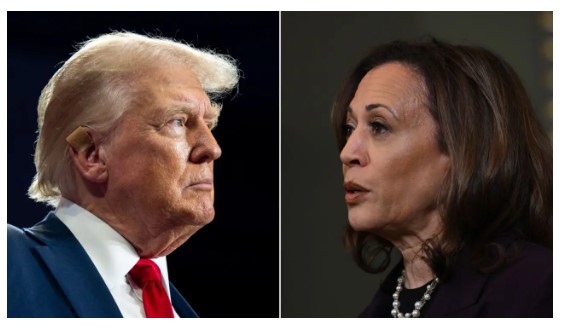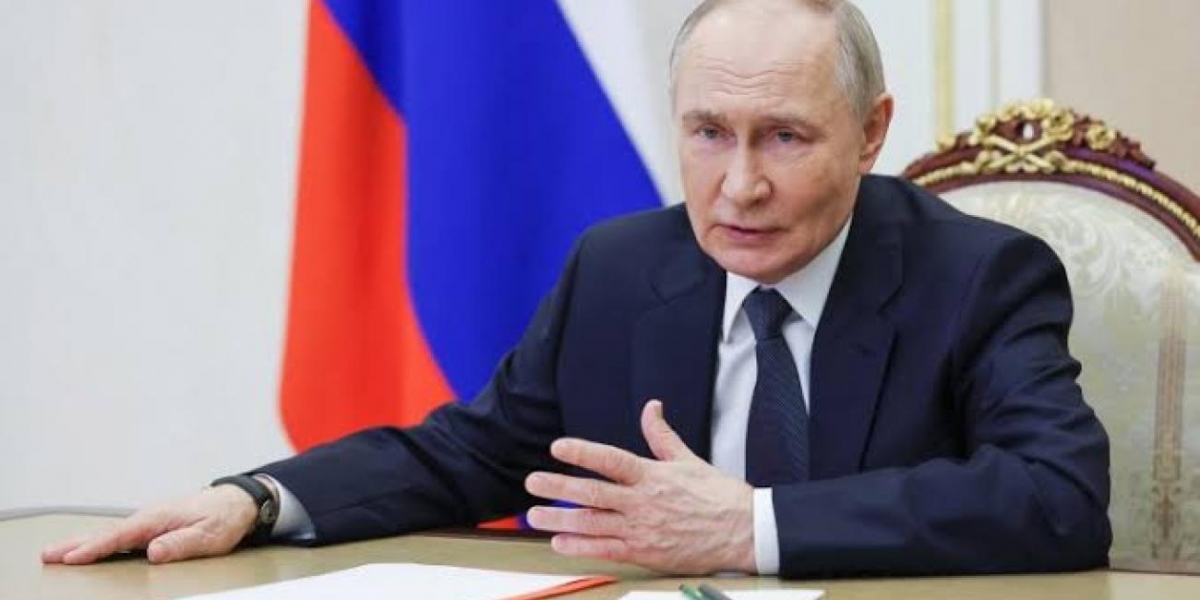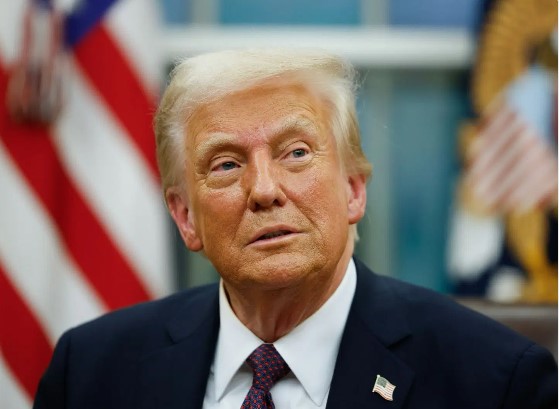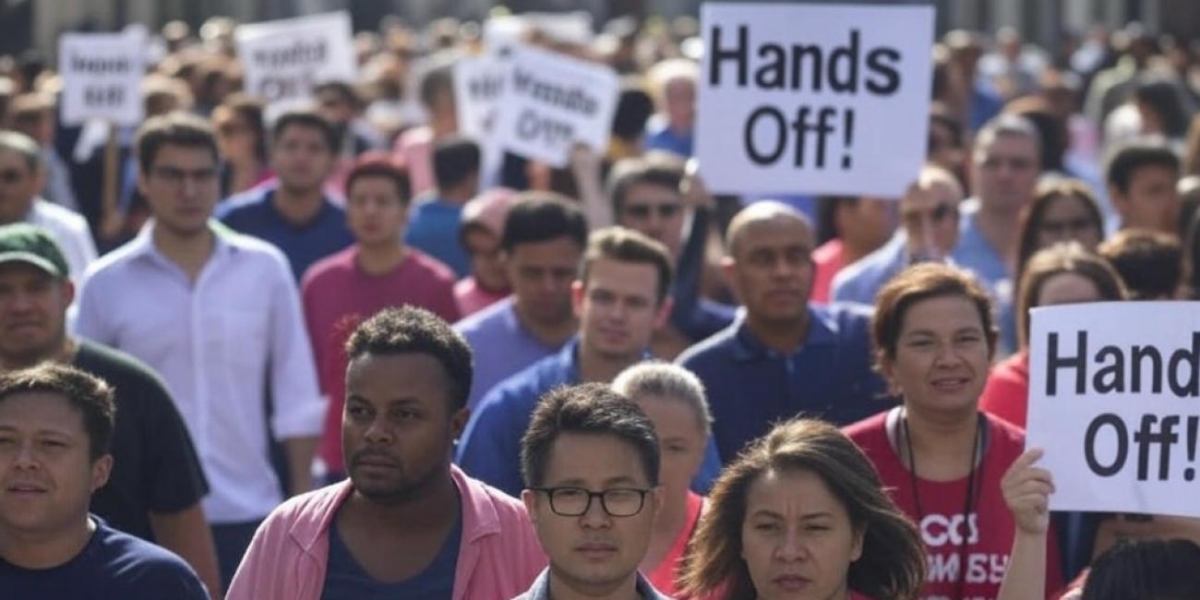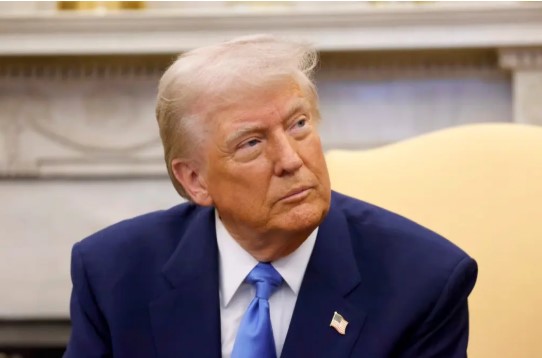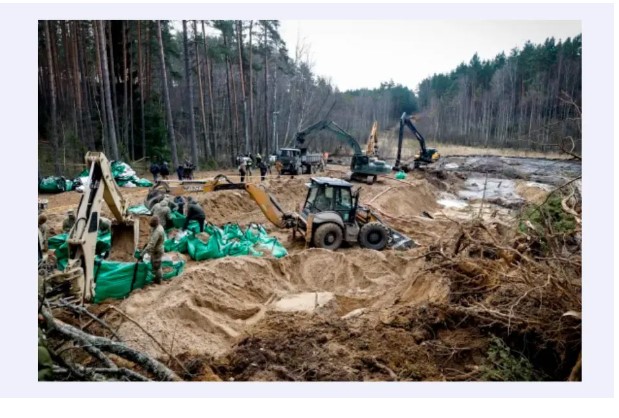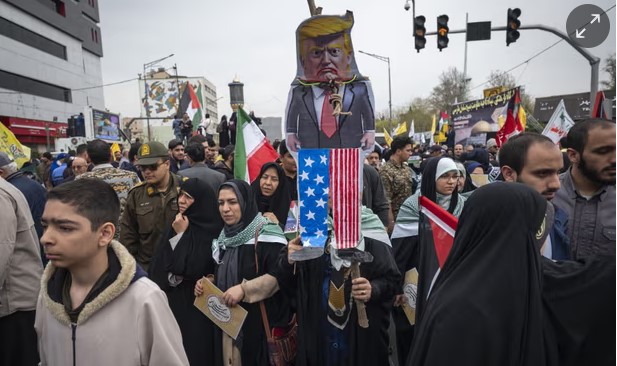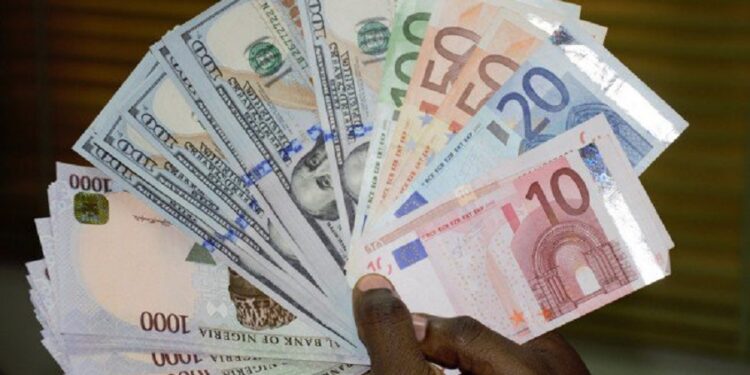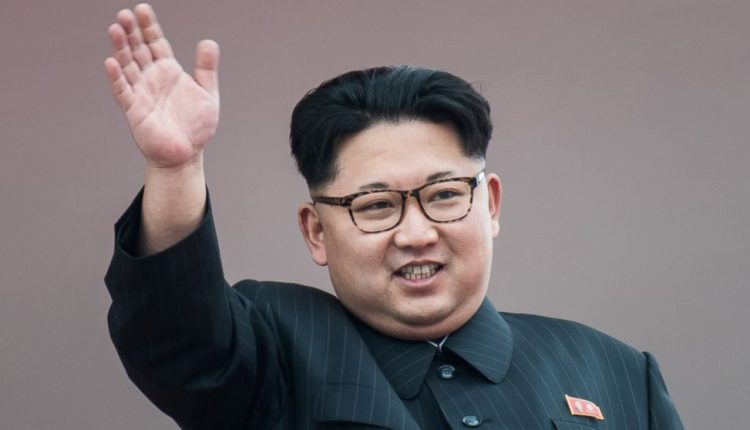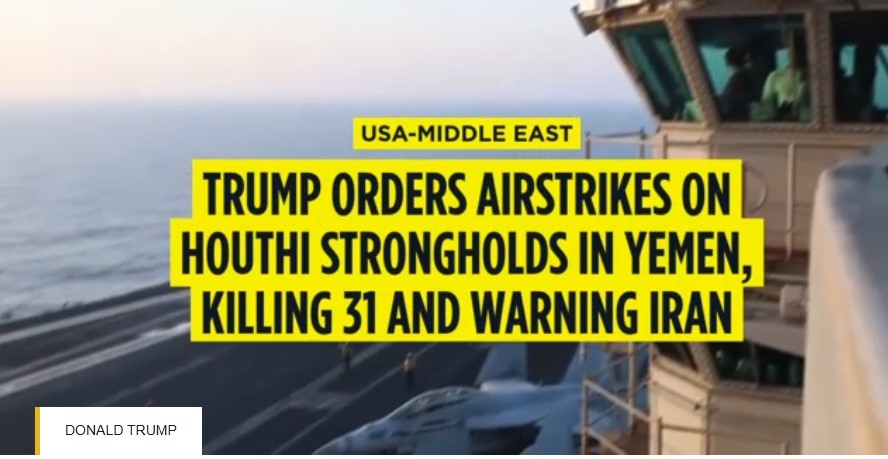"Long gas lines forming in North Korea. Too bad!" - Trump tweets
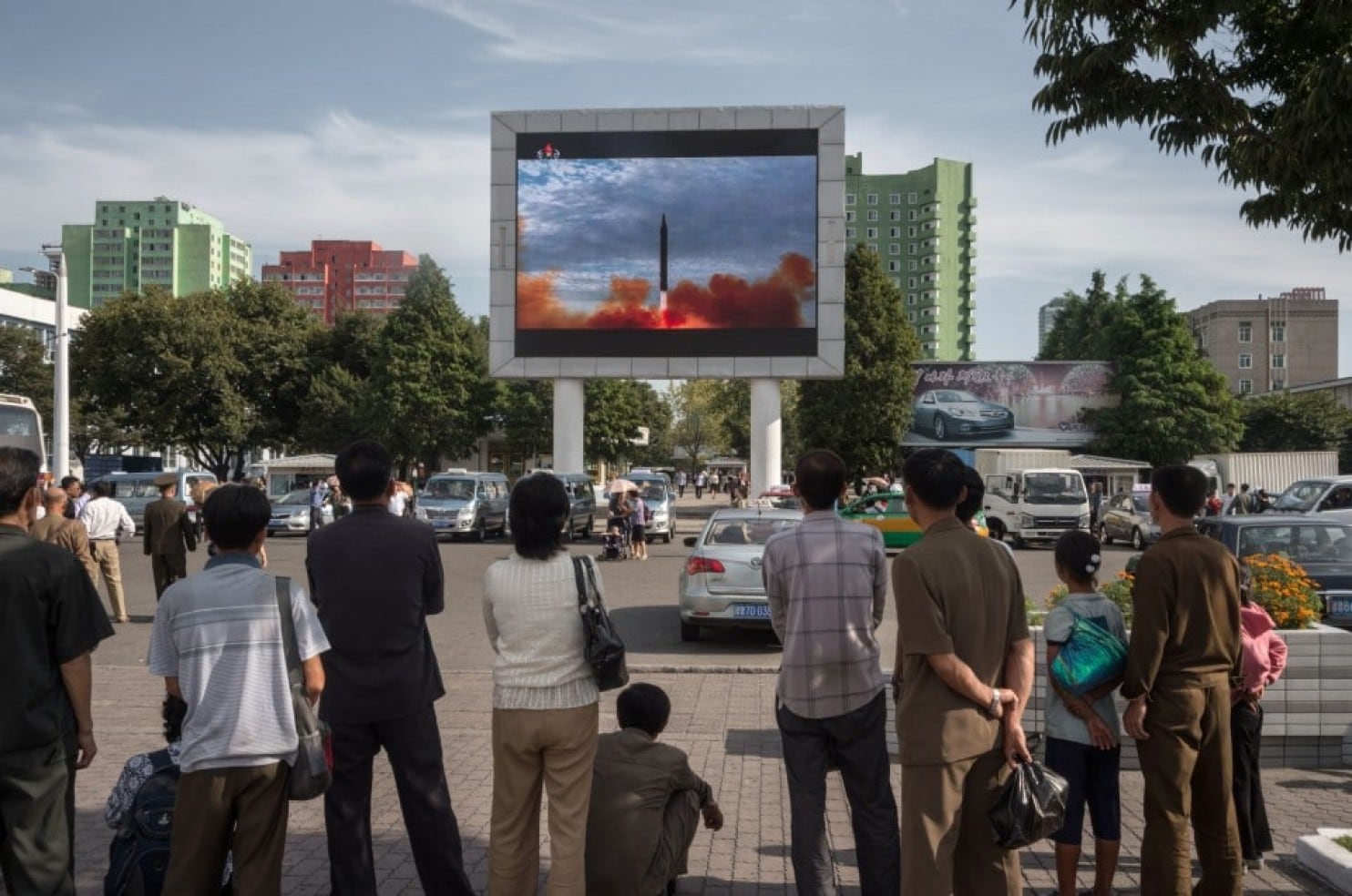
In his latest Twitter outburst against North Korea, President Trump said that “long gas lines [are] forming in North Korea,” adding an exclamatory “Too bad!” (In the same tweet, he bestowed a new nickname on Kim Jong Un as "Rocket Man")
Did you know? You can comment on this post! Just scroll down
"I spoke with President Moon of South Korea last night. Asked him how Rocket Man is doing. Long gas lines forming in North Korea. Too bad!"
But where is the president getting this information about gas lines from?
Residents in the North Korean capital are scratching their heads. Although there are reports of price increases, they’ve seen no queues at the few service stations in Pyongyang, a capital of some two million that has more cars than it used to but is still far from congested.
“We are not aware of any long queues at the gas stations,” said one foreign resident of Pyongyang. “At least, I haven’t noticed anything. I asked a few Koreans and they haven’t seen anything either.”
Another said there had been no obvious change since the last sanctions resolution was passed by the U.N. Security Council. “Traffic on Friday was as heavy here as I’ve seen it. Normal on Saturday. Quieter on Sunday.” In other words, the same as every week.
In its effort to punish Kim Jong Un for his continued defiance — repeated missile launches, a huge nuclear test — the United States has been leading a push to cut off oil to the isolated state. Its efforts to impose a complete oil embargo on North Korea failed, with China and Russia threatening to use their veto powers to block such a resolution.
Instead, the new sanctions measures passed last week cap North Korea’s imports of crude oil at the level it’s been at over the last year and limits refined petroleum imports — including gasoline, diesel, heavy fuel oil — to two million barrels a year.
North Korea currently receives about 4.5 million barrels of refined petroleum products a year and four million barrels of crude. The new sanctions will cut oil exports to North Korea by about 30 percent, the United States mission to the United Nations said. Of that, 55 percent of the cut would be in refined products, it said, and the sanctions limit North Korea’s ability to import substitutes.
But analysts say there is plenty of wiggle room for China to continue supplying oil to North Korea if it wants to — just as a "livelihood exception" for coal exports previously did.
While supporting the sanctions in principle, China has a patchy record when it comes to implementation, and implementation depends almost entirely on China. About 90 percent of North Korea’s trade goes through China.
The sanctions are unlikely to have a significant impact on North Korea’s military or nuclear weapons and missile programs, said David von Hippel and Peter Hayes of the Nautilus Institute for Security and Sustainability.
“These military sectors will have priority access to refined fuels, including likely fuel caches of significant volume that have already been stockpiled and provide a substantial buffer against the sanctions,” they wrote in a recent note. “Primarily, these sanctions will affect the civilian population.”
North Korea was constantly looking for — and finding — ways around the sanctions, making the state more resilient to existing and future sanctions, von Hippel and Hayes wrote.
That means the sanctions will have little effect on the desired goal now — reversing North Korea’s missile and nuclear programs — and could diminish the leverage that the international community has over North Korea in the future. For example, when it needs to persuade North Korea to come back to denuclearization talks, the analysts said.
While there are no obvious signs of gas lines forming — no surprise in a country where there is almost no private car ownership — there has been evidence of an increase in prices.
Gasoline prices started to rise in certain parts of the country after North Korea’s sixth nuclear test, conducted Sept. 3, apparently in anticipation of shortages.
In Pyongyang, one kilogram of gasoline — that’s how it’s measured in North Korea — rose from 18,000 to 23,000 North Korean won during the first week of September, citing sources in the capital. Diesel prices had also risen, it reported.
There have been blips like this several times this year, but analysts say they have seen no other signs of stress in the economy — like rising rice prices or sudden exchange rate fluctuations.
There have been some limitations on filling jerry cans, but this appeared to be a measure to stop re-selling and had been in place for some time, one Pyongyang resident said.
Others say it will take time to see whether there is any effect from the sanctions — and certainly longer than the week it took before Trump claimed an impact.
Article Posted 7 Years ago. You can post your own articles and it will be published for free.
No Registration is required! But we review before publishing! Click here to get started
One Favour Please! Subscribe To Our YouTube Channel!
468k
Cook Amazing Nigerian Dishes, Follow Adorable Kitchen YouTube Channel!
1.1m
Like us on Facebook, Follow on Twitter
React and Comment
Click Here To Hide More Posts Like This
Watch and Download Free Mobile Movies, Read entertainment news and reports, Download music and Upload your own For FREE.
Submit Your Content to be published for you FREE! We thrive on user-submitted content!
But we moderate!




